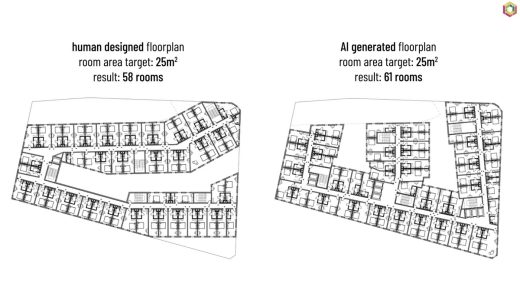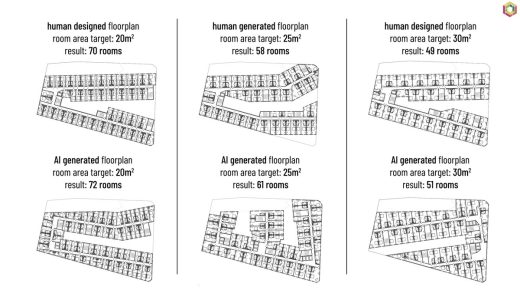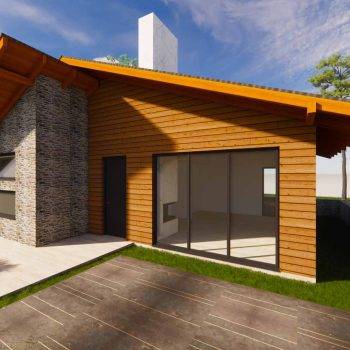Can Computer Replace Architects?
Article by Jan Cudzik, a professor of architecture at Gdansk Technological University. Along with his colleagues he is doing research on artificial intelligence in hotel design.
At the moment their algorithms are better than human architects in 84% of cases, the software is doing creative design tasks!

Our algorithm uses the advantage of e fuqisë llogaritëse. Për një njeri, krijimi i një dizajni skematik të një ndërtese kërkon kreativitet – sepse ne mund të dalim me një duzinë, më së shumti disa dhjetëra zgjidhje të ndryshme për një pronë të vetme. Prandaj, një arkitekt i mirë duhet të ketë imagjinatë dhe përvojë hapësinore – të dijë të imagjinojë ndërtimin e mëtejshëm. Kompjuteri nuk ka nevojë për imagjinatë, sepse krijon dhjetëra dizajne në sekondë dhe në 15 minuta mund të krijojë dhjetëra mijëra të tilla. Inteligjenca artificiale nuk e merr me mend se cila zgjidhje është më e mira. Thjesht e di me siguri sepse ka kontrolluar të gjitha zgjidhjet e mundshme Says Ph.D. Ing. Arch. Jan Cudzik, whose team is working on developing the algorithm

“ In the end, computers do not turn out to be less creative than humans - quite the opposite. In many situations, where for the same property we consider hotels with different room sizes, e.g. the 20, 25 or 30 m2 designs made by the architects are very similar in shape, regardless of the size of the unit. The computer thinks about each case separately, so the structure of the building will be completely different even if the minimum area of the room is changed by only a few square meters. ”
Why is OutlineAI focused on arranging hotel rooms and maximizing them?
“ This is the most important question asked by property owners or investors who are considering building a hotel. The number of rooms is directly correlated with the value of a property or whether it is profitable to build a hotel or not . In San Francisco, for example, each hotel room generates about $ 100,000 a year. Adding a few units to each floor will increase revenue by millions of dollars. "- explains Alan Szawarski, one of the founders -"
This is not the only use of our AI. It also allows you to analyze the type of hotel you need to build and which will bring the highest profit. A room in a 5 * hotel will have a higher daily rate than in 3 *, but the units will also be larger and the property will fit much less of them. So it may turn out that you get a room for rent cheaper, but due to their much larger number, the income of the whole building will be higher. "

It is not just about profits. People want to live and stay in the city center because they want access to restaurants, museums, culture and other people. OutlineAI algorithms allow to maximize the use of space and do not do so at the expense of living conditions and reducing rooms to microscopic size, but through their smarter arrangement.
The question remains, however, will computers eventually replace architects? "No, because people will still be needed to detail the concept, to check the decor design schedules and then to oversee the construction. There will be more and more solutions that reduce the time it takes architects to get their work done and benefit from their end use.

In addition, it is amazing that humans have begun to learn from our artificial intelligence. We have architects whose projects have been used to test our algorithms. Many of them after we better resolve real estate, want to try to face the computer again and again. Most of them eventually start imitating the computer in some aspects trying to, for example, rotate the corridors to different angles like our artificial intelligence - says Jan Cudzik and adds - "
We are now in an amazing place in architecture. Computers do not have human experience in design, so they do not have prejudices, thinking imposed over the years, what the building should look like. AI views every real estate like a small child - with fresh eyes. This can finally change the way people see what a building should look like. Thanks to computers, we also have a chance to look again and see if the fact that we have done something the same for hundreds of years is a result of the fact that it is for the better or that we are just getting used to it. ”


